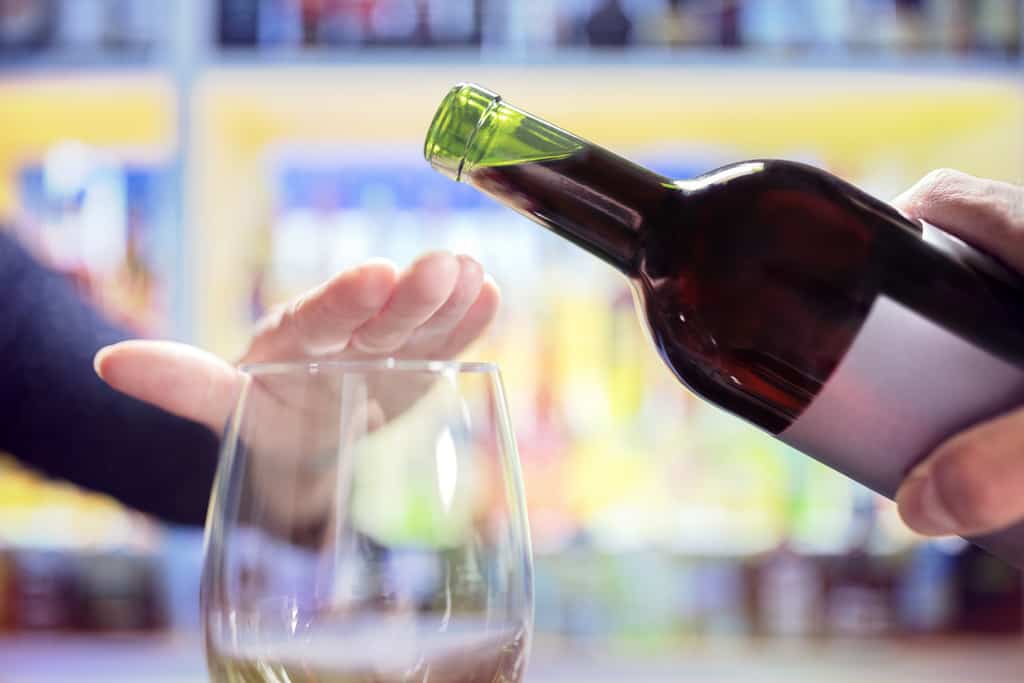
This website uses cookies to improve your experience. We'll assume you're ok with this, but you can opt-out if you wish. Read More
The Next Round: What happens after you change your drinking?

January is fast approaching, a time of year when we start thinking about old habits and new intentions. If we’ve been worrying about our drinking habits, this might be at the top of our New Years resolution list. The idea of giving up completely might be really overwhelming. Whether we’re testing the waters with a month off this January or we’re thinking of quitting altogether, it’s important to keep in mind what we’re gaining and not what we feel we might be losing. Having 10 clear reasons to stop drinking in mind can help motivate us through those first few days and weeks until we start to feel, see, and appreciate the benefits of a break from booze.
Drinking too much can disrupt our sleep as it messes with our circadian rhythm. Relying on alcohol’s sedative qualities to get us to sleep affects the normal production of chemicals in the body that trigger sleepiness. This means we’re less likely to get into a natural deep sleep state. We’re likely to wake up not feeling refreshed, needing to pee frequently, feeling dehydrated, and with a pounding heart. We don’t so much sleep as pass out from drugging ourselves.
Good sleep quality should be one of our top reasons to stop drinking. Our bodies already know how to do it well, we just need to stop interrupting the process with alcohol. It can take some time to get back into a good sleep pattern when we give up drinking, but if we see it as part of our overall problem drinking plan, we’ll soon be sleeping soundly again.
Hangover anxiety, or hangxiety, is a potent cocktail of alcohol-induced anxiety as well as the physical symptoms that come with a hangover, such as dehydration, headache, nausea, pounding heart, and reduced happy hormones. It makes sense that giving up drinking means we’ll skip hangxiety altogether, but keeping alcohol-related psychological discomfort in mind when thinking of quitting might help us stick to our goals long-term.
Alcohol’s effects on our mental health are far-ranging. Avoiding self-induced anxiety and depression are two big reasons to stop drinking, as well as helping to manage any existing mental health conditions. While ingesting alcohol, which is a depressant, can make us more vulnerable to depression, booze also exacerbates any existing anxiety by lowering our levels of serotonin. The interference with our neurotransmitters also stops any treatments and medications that we may be taking for mental health from working effectively.
Quitting alcohol will not instantly improve our mental health. Repairing the brain’s normal functions can take time, but we’re likely to feel in better mental form over time. In the meantime, we can prepare a mental health first aid kit to get us through the first few weeks.
Alcohol contributes to many preventable illnesses. The link between alcohol and certain cancers is well documented, as well as causing horrible long-term conditions such as liver disease, heart disease, diabetes, high blood pressure, gastritis, and gout.
If we’ve managed to avoid getting a nasty health condition from drinking too much alcohol then this list should serve as some great reasons to stop drinking. Much like the toll alcohol takes on mental health, what’s in our glass can also aggravate existing conditions that were not caused by substance abuse. Some of our content for Men’s Health Week shone a light on how Club Soda members achieve better health when quitting alcohol. A few weeks off the sauce and the results should speak for themselves.
Feeling physically fit is one thing. Being clear-headed is entirely another. Taking time off drinking has enormous benefits for our brain, too! While we’ve become accustomed to slow reflexes and slurred speech being part of a night out, they’re actually signs that our frontal lobes are struggling. Over time, the shrinking that happens in this part of the brain has been linked to dementia. But not for us – coming off the sauce means that we’re giving our brain the chance to repair vital functionality. This leads to better memory, better motor responses, and being more cognitively fit. Basically, our brains will work better, and who doesn’t want that?
Maintaining healthy relationships can be difficult. If we’re also battling with problem drinking, or are close to someone who is, it can feel like a barrier to that closeness. Giving up alcohol can allow us to be clearer with our intentions and our boundaries, making for better relationships all around. That’s not to say that taking time off from drinking will fix all of our relationship issues, but it will certainly allow us to handle them in an unclouded way.
It’s important to try to remember that giving up alcohol means that we’re changing the dynamic of our relationship with friends and family. Suddenly, we’re not doing something that we’d usually do together. That can be uncomfortable for those around us and takes a period of adjustment for everyone.
There are a lot of uncomfortable emotions around doing something which is not normative. It’s really important we tell the right people and get the right support from people in those early days.
Kate Bailey, Love Sober
It’s not just those around us who might sense the positivity of our choices. When we stop overindulging then we’re able to start taking care of ourselves properly. Self-care becomes quite addictive – it’s a sure-fire way to start feeling more self-confident. We’ve removed the raging hangovers, the guilt about what we did/said/didn’t do the night before, and there’s nothing to beat ourselves up about. We even know where our phones are and how we got home!
Ever woken up from the night before and not really sure what happened with the person sleeping next to you? Whether we’re in a relationship or not, drunk sex can be messy, complicated, and might not always go to plan, if you get the gist.
Sober sex can seem quite scary, too. Maybe we’ve never taken our clothes off in front of partners without a bit of dutch courage first. While a few glasses of wine can increase confidence and enhance libido, it also dulls the sensitivity of nerve endings, meaning sex is never quite as good as it could be. Yes, sober orgasms rock, no matter your gender, sexuality or preferences. When everyone is able to concentrate on the task at hand, then it’s all going to feel pretty wonderful!
Alcohol is not our friend when it comes to staying healthy and maintaining a good weight. The underlying reason for this is that our body processes alcohol as poison. It has nowhere to store alcohol and it must be expelled. It affects our bodies in multiple ways, all of which can affect our fitness and weight. From pendulum-swinging blood sugar levels to post-binge cravings, not to mention the high calorific value of some alcoholic drinks and mixers, a few nights on the sauce can start to make us sluggish and pudgy.
The good news, then, is that switching to low or no alcohol drinks is great for our mind, body, and self-esteem. While it will take some time for our metabolism to even out and will require patience to see the results, we’re likely to start feeling better pretty soon. Quitting alcohol means that we’re giving your stomach lining the chance to heal from alcohol abuse, and we’ll start absorbing more nutrients from our food. We’ll experience fewer sugar cravings, start to feel healthier, and then it’s an upward spiral from there!
I didn’t go to the pub very often. It’s more expensive. I get much more for much more booze for my buck if I drank at home.
Ian Bilik, Club Soda member & sober blogger
As with any habitual behaviour, drinking costs money! Buying alcohol in our local pub has become more expensive over the last few years. Even drinking at home has become pricey, with wine prices estimated to leap by around 10% with inflation in 2022. Quitting drinking will help keep the budget in check, and even with alcohol-free alternatives pricing themselves similarly on bottle shop shelves, you’re still less likely to down those 4 pints you didn’t really want/need/remember at the end of the night at an extra costly £20.
Sick of being sick? This is one of the reasons to stop drinking that we often overlook. There’s no denying that drinking regularly suppresses our immune system. Drinking reduces the white blood cells that help us to fight infections. Quitting drinking helps the body to defend itself from any incoming bugs more effectively. We’re also better equipped in the vitamin and mineral department when we give the booze a miss, as lining our stomachs with ethanol stops us from absorbing vital nutrients. All in all, we’re happier, healthier, and more fighting fit when taking a break or quitting alcohol altogether.
If you’re looking to stick to your January goals and beat Blue Monday, we have plenty of motivational tips in our blog section or listen to our podcast series where we will be sharing our advice on how to plan for a month off drinking. Need some additional help? How to Stop Drinking is our popular online course which, with tools and support, will help you discover life beyond alcohol.
This website uses cookies to improve your experience. We'll assume you're ok with this, but you can opt-out if you wish. Read More
| Name | Domain | Purpose | Expiry | Type |
|---|---|---|---|---|
| wpl_user_preference | joinclubsoda.com | WP GDPR Cookie Consent Preferences. | 1 year | HTTP |
| PHPSESSID | www.tickettailor.com | PHP generic session cookie. | 55 years | HTTP |
| AWSALB | www.tickettailor.com | Amazon Web Services Load Balancer cookie. | 7 days | HTTP |
| YSC | youtube.com | YouTube session cookie. | 55 years | HTTP |
| Name | Domain | Purpose | Expiry | Type |
|---|---|---|---|---|
| VISITOR_INFO1_LIVE | youtube.com | YouTube cookie. | 6 months | HTTP |
| Name | Domain | Purpose | Expiry | Type |
|---|---|---|---|---|
| _ga | joinclubsoda.com | Google Universal Analytics long-time unique user tracking identifier. | 2 years | HTTP |
| sbjs_migrations | joinclubsoda.com | Sourcebuster tracking cookie | 55 years | HTTP |
| sbjs_current_add | joinclubsoda.com | Sourcebuster tracking cookie | 55 years | HTTP |
| sbjs_first_add | joinclubsoda.com | Sourcebuster tracking cookie | 55 years | HTTP |
| sbjs_current | joinclubsoda.com | Sourcebuster tracking cookie | 55 years | HTTP |
| sbjs_first | joinclubsoda.com | Sourcebuster tracking cookie | 55 years | HTTP |
| sbjs_udata | joinclubsoda.com | Sourcebuster tracking cookie | 55 years | HTTP |
| sbjs_session | joinclubsoda.com | SourceBuster Tracking session | Session | HTTP |
| Name | Domain | Purpose | Expiry | Type |
|---|---|---|---|---|
| mailchimp_landing_site | joinclubsoda.com | Mailchimp functional cookie | 28 days | HTTP |
| __cf_bm | tickettailor.com | Generic CloudFlare functional cookie. | Session | HTTP |
| NID | google.com | Google unique id for preferences. | 6 months | HTTP |
| Name | Domain | Purpose | Expiry | Type |
|---|---|---|---|---|
| _ga_10XZMT03ZM | joinclubsoda.com | --- | 2 years | --- |
| AWSALBCORS | www.tickettailor.com | --- | 7 days | --- |
| cf_clearance | tickettailor.com | --- | 1 year | --- |
| VISITOR_PRIVACY_METADATA | youtube.com | --- | 6 months | --- |
Join Club Soda for 10% off your first order of drinks for UK delivery. Plus get our latest news and special offers for members to choose better drinks, change your drinking and connect with others.
If you get an error message with this form, you can also sign up at eepurl.com/dl5hPn